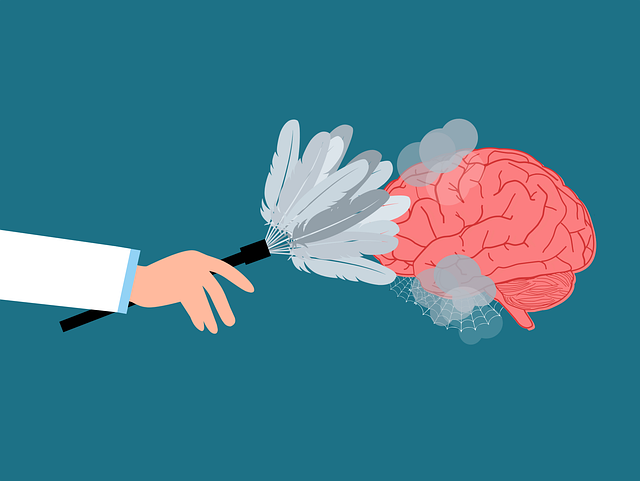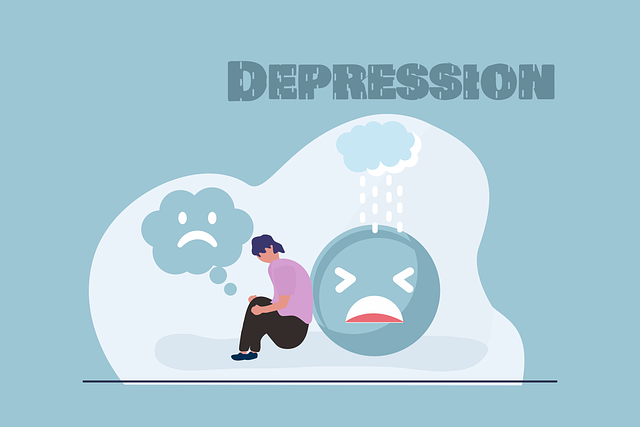Arvada Bipolar Disorder Therapy emphasizes stress management as a key component of treating bipolar disorder. They teach robust coping strategies, including Mindfulness Meditation, regular exercise, and structured routines, to help individuals reduce emotional volatility, break negative patterns, and maintain stability. Their structured approach not only manages symptoms but promotes resilience and overall well-being, contributing to Mental Illness Stigma Reduction Efforts and comprehensive mental health education.
In today’s fast-paced world, managing stress effectively is crucial for maintaining mental health, especially for those living with bipolar disorder. This article delves into the comprehensive approach of stress management techniques teaching, offering valuable insights for individuals in Arvada seeking to overcome challenges associated with bipolar disorder. We explore understanding stress, its impact on mental health, and effective strategies tailored to this specific condition. Additionally, we highlight the transformative role of therapy in fostering long-term coping skills.
- Understanding Stress and its Impact on Mental Health
- Effective Stress Management Techniques for Bipolar Disorder
- The Role of Therapy in Teaching Long-term Coping Strategies
Understanding Stress and its Impact on Mental Health

Stress is a natural response to demanding situations, but when it becomes chronic, it can significantly impact mental health. For individuals living with bipolar disorder in Arvada, managing stress is an essential component of maintaining stability and preventing mood episodes. The constant state of heightened alertness and emotional volatility that often accompanies bipolar disorder makes effective stress management techniques crucial for coping with daily life’s challenges.
Understanding how stress triggers emotional dysregulation can empower individuals to implement positive thinking strategies and develop healthier coping mechanisms. By learning effective emotional regulation skills, Arvada Bipolar Disorder Therapy clients can break negative patterns, foster resilience, and improve overall well-being. Integrating stress management into daily routines is a proactive approach to mitigating the impact of stress on mental health.
Effective Stress Management Techniques for Bipolar Disorder

Managing stress is a vital aspect of living with Bipolar Disorder. The right techniques can significantly improve mood stability and overall well-being for individuals in Arvada seeking Bipolar Disorder Therapy. One effective approach is Mindfulness Meditation, which encourages focusing on the present moment, accepting thoughts and feelings without judgment. Regular practice can help reduce emotional volatility and enhance coping mechanisms.
Additionally, engaging in Depression Prevention strategies like regular exercise, maintaining a structured routine, and connecting with supportive communities are crucial. Mental Health Awareness is key; recognizing early signs of stress or depressive episodes allows for prompt intervention. By combining these techniques, individuals can navigate their Bipolar Disorder journey with increased resilience and a better quality of life.
The Role of Therapy in Teaching Long-term Coping Strategies

Therapy plays a pivotal role in teaching long-term coping strategies for stress management, especially for individuals dealing with mental illness like bipolar disorder. Arvada Bipolar Disorder Therapy, for instance, focuses on empowering clients to develop robust tools and insights that go beyond quick fixes. Through structured sessions, therapists guide patients to understand their emotional triggers, recognize early warning signs of stress or relapse, and implement tailored strategies to mitigate these challenges. This approach not only helps in managing symptoms but also fosters resilience and overall well-being.
Incorporating therapy into stress management education extends beyond individual treatment. It contributes significantly to broader efforts like Mental Illness Stigma Reduction Efforts and the design of comprehensive Mental Health Education Programs. Healthcare Provider Cultural Competency Training is equally essential, ensuring that therapists are equipped to address diverse client needs, thereby enhancing the effectiveness of long-term coping strategies taught during therapy sessions.
Stress management is a vital tool for individuals living with bipolar disorder, offering a path towards improved mental well-being. Through understanding stress triggers and its impact on mental health, individuals can learn effective techniques to cope. Arvada Bipolar Disorder Therapy emphasizes the importance of therapy as a teaching method, empowering clients to develop long-lasting coping strategies that enhance their overall quality of life. By integrating these practices into daily routines, one can navigate stress with resilience, leading to a more balanced and fulfilling life.














